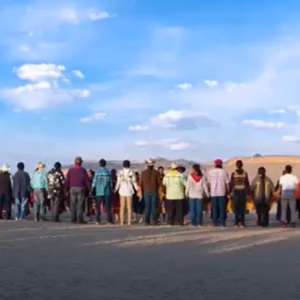Spotlight: Tribal Climate Adaptation Planning
Date
On October 18 – 21, 2021, participants from the Ute Mountain Ute, Southern Ute and Ute Tribe of Utah came together in a virtual setting to attend the Tri Ute Climate Adaptation Workshop, the first in a series of four climate adaptation workshops funded by the BIA Tribal Climate Resilience Program. Ute Mountain Ute climate change coordinator, Margie Connolly, and NC CASC tribal liaison, Stefan Tangen, led and facilitated this 4-day online training workshop. NC CASC research ecologist, Brian Miller, also provided adaptation training while Doug Kluck from NOAA provided an opening presentation on climate change impacts.
As climate change impacts Tribal nations, the crafting and implementing of strategic adaptation plans help them to address specific vulnerabilities and determine courses of action based on the best information at hand. Incorporating the tribal context is particularly important to make climate information more relevant and valuable. These types of workshops “provide relevant information about climate change impacts and adaptation opportunities at the appropriate scale and scope” says Stefan Tangen, while also providing training on tools and resources already in place.
Goals of this virtual workshop included learning about the process of developing adaptation plans and creating space for building a community of practice of tribal resource managers to learn from each other, collaborate and develop relationships within and outside of each tribal nation. Participants received access to a “Tribal Climate Adaptation Guidebook”; training on how to determine and rank vulnerability as it pertains to risk assessment; access to an adaptation planning toolkit put together by the Institute for Tribal Environmental Professionals (ITEP); and information on how to engage their communities in climate action.
When asked if he thought the workshop was a success, Tangen says he believes so, as the reviews were positive, and comments were constructive on what could be improved in a virtual setting. During pandemic restrictions, “it’s critical to be flexible and adaptive by utilizing Zoom and other distance learning technologies, where appropriate, to make the information as accessible and useful as possible”.
The next workshops will focus on drought monitoring and adaptation, climate summaries and dashboards, and incorporating traditional ecological knowledge (TEK) into climate change work. Participants expressed interest and enthusiasm for the remaining workshops, with several key participants expressing interest in pursuing climate adaptation planning at their respective tribes - a key metric of success according to Tangen.


